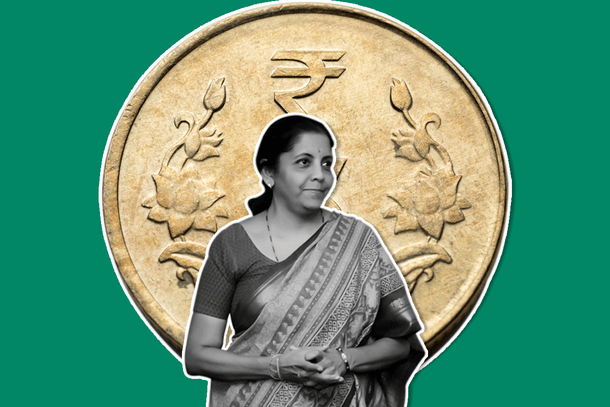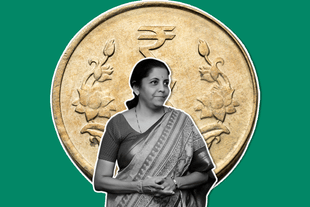Economy
The Timing Of The Corporate Tax Cut Made It Even More Valuable
Gopalan Ramachandran
Oct 09, 2019, 11:39 AM | Updated 11:39 AM IST
Save & read from anywhere!
Bookmark stories for easy access on any device or the Swarajya app.


India’s Finance Minister Nirmala Sitharaman has acted most appropriately and courageously by announcing a corporate tax cut. The tax cut was announced on 20 September 2019. There could not have been a better time to announce the cut as both the necessity and the opportunity were there.
It was necessary from the perspective of improving the situation. Announcing this earlier was not part of the plan. Announcing this later would have turned anxiety into agony during the wait. Moreover, by announcing this later India would have missed riding an upturn from the start.
India has been work-in-progress for more than 70 years. The focus of both governance and policy-making has been “improving the situation’. India’s annual Economic Survey and the Union Budget can be likened to twins that (1) describe a complex situation with as much simplicity as possible and (2) a massive fiscal plan to improve the situation. The two documents have a serious and a loyal following. India has been served well by these two documents.
It is unambiguously the privilege of the reader to assess how much improvement has been made and how much improvement needs to be made. Yet it would be fair to assert that enormous improvement has been accomplished. It would be as fair to suggest that enormous improvement needs to be made. That is why India has been a 'happening economy' since 1991.
India is big, very big. It has more young people than any other country in the world. It would not be inapt to suggest that India’s young outnumber the entire population of many countries. As a consequence, this happening economy has stirred enormous confidence and hope.
Neither the Economic Survey nor the Union Budget presented in the first week of July 2019 gave a hint of any corporate tax rate cut. A corporate tax rate cut is an utterly ordinary policy event. That is probably the reason for its exclusion. The two documents instead focused on making India a 'five-trillion-dollar economy' and had a list of 'blue-sky policies' aimed at lifting the Indian economy to great heights. The audacity and the sincerity of such a vaulting ambition set off waves of approval.
Yet, India had to announce significant cuts to corporate taxes in less than 10 weeks of the presentation of the Budget. The corporate tax cut announced was an apt response to the deep economic gloom that had set in since June 2019. Both the Economic Survey and the Union Budget chose to stir optimism with words and some numbers without realising the depth and the width of the gloom.
A time-series snapshot of the McKinsey Global Survey of economic conditions supports the assertion that India fell off a cliff in merely three months. Consider June 2019: 31 per cent had felt that economic conditions had turned worse; 38 per cent had felt they had not changed; 30 per cent had felt the Indian economy had improved.
Now consider September 2019: a whopping 79 per cent had felt that economic conditions had turned worse; only 11 per cent had felt they had not changed; and a scant 10 per cent had felt the Indian economy had improved. Such a precipitous fall is rare. The economic gloom was thoroughly incompatible with the thumping electoral outcome in favour of the incumbent government.
The Finance Ministry and its head Sitharaman, could not have sat on such miserable numbers. They acted swiftly by resorting to that utterly ordinary fiscal tool: the tax cut. A tax cut does not require the government to give away a rupee. Not a rupee leaves the treasury. The beneficiaries do all the work. It is getting to work that the tax cut has triggered.
If getting to work is the objective, was the timing appropriate from the perspective of India’s economic cycle? Yes. It is almost as if the Finance Ministry could predict what Lakshman Achuthan would reveal two days later. He is the co-founder and chief operating officer of the globally reputed Economic Cycle Research Institute (ECRI). Banks, corporations and governments pay attention to Achuthan.
ECRI stirred optimism when it reported an upturn in India’s economic cycle on 22 September 2019. The Finance Minister and her team had everything right. They did not miss a day of the new cycle. Thus, the corporate tax cut passes the tests of necessity and opportunity. It is up to India Incorporated and the multinational corporations to make the most of this well-timed corporate tax cut.
The author is an investment banking analyst; he is an associate in Akara’s finance, governance and digital systems practice.





